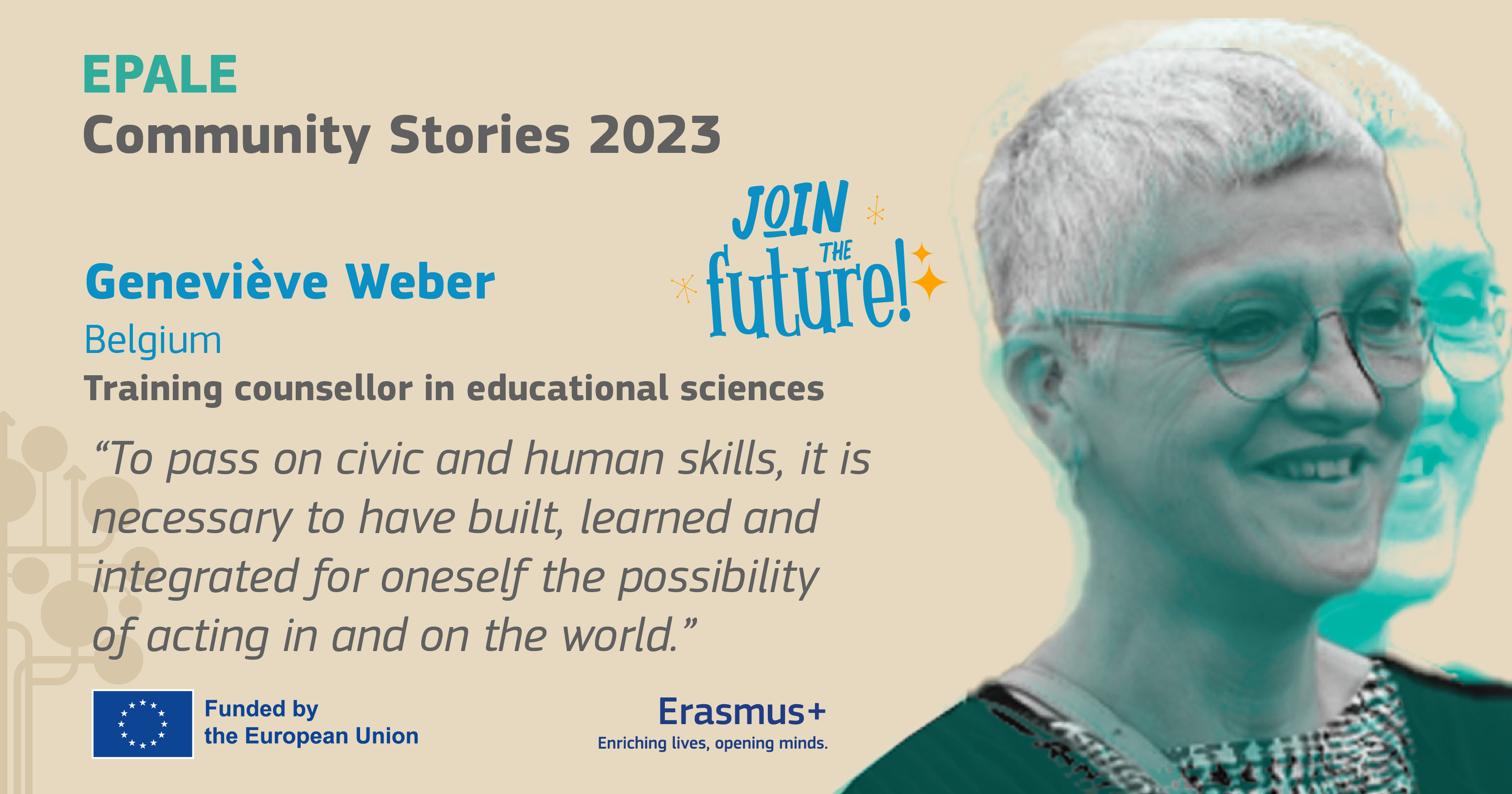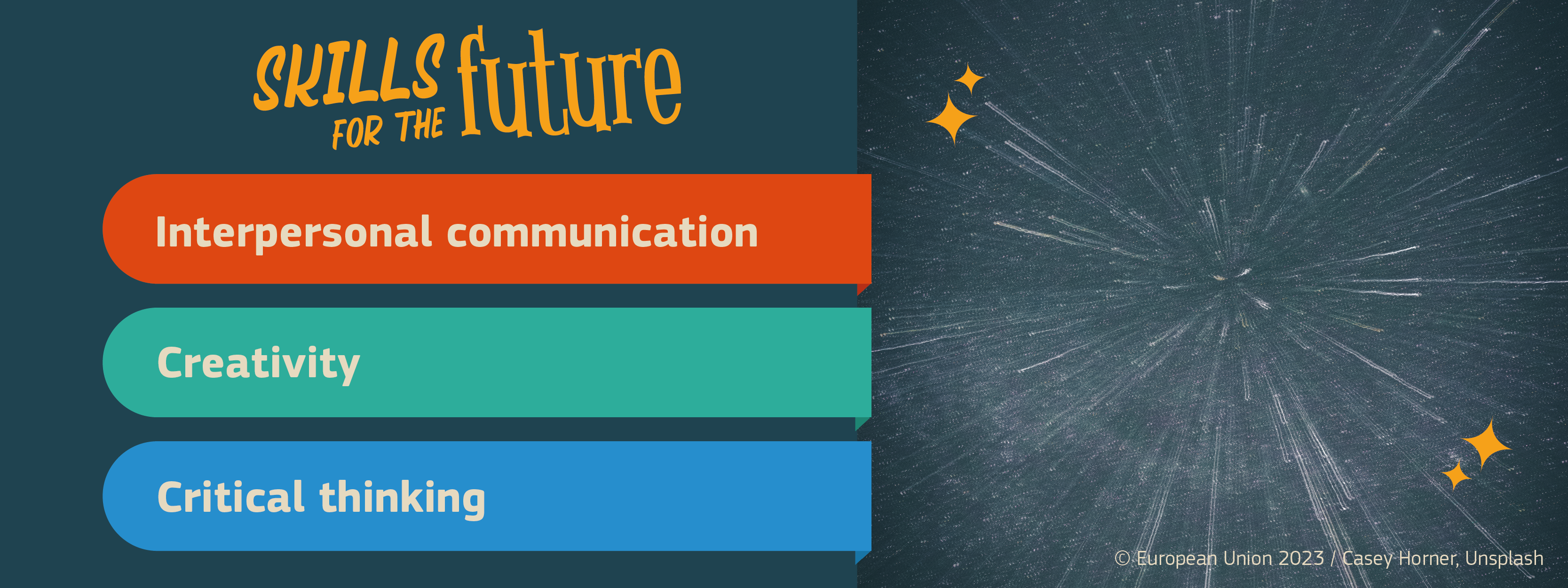Geneviève Weber: Somewhere between academic and reflective

Short bio
I have a degree in psychology and educational science and have been a teacher of adults for many years. I work as a training counsellor in a master's programme in educational sciences for adults who are continuing or returning to education. I'm fascinated by human relations, learning and andragogy... so the question of 21st century skills is particularly relevant to me.
My story
The current reflections on the guidance given to groups and students in the master's programme in educational sciences for adults returning to or continuing their studies, in which I have the specific role of "training adviser", have led me to question the very notion of guidance and, in particular, its objectives in the context of training for adults returning to study today.
The particular guidance offered by the training counsellor is integrated into the curriculum alongside the academic courses. It's a form of support that could be described as "somewhere between academic and reflective". This support is at the service of the student, their project and their social and professional integration. It aims to set up a process of reflection on the training pathway, to equip students for academic work and to support collaborative working.
Collaborating is now required in many professional contexts and is essential for collective and civic action. In the adult education context in which we work, sub-group work should help to develop the skills and abilities needed to improve this ability.
Despite this, we note that psychosocial skills such as effective communication, argumentation, group decision-making, critical thinking, etc., despite being announced in the Learning Outcomes of our programme, seem to be neither conscious nor formalised by many students. We hypothesise that this lack of awareness may be because these skills are not taught specifically and are not assessed as such.
Although universities are well aware that they have an undeniable role in learning these new skills, formal, academic learning is still the watchword in university curricula, and teaching methods for learning "non-academic" skills are still underdeveloped.
It is undeniable today that psychosocial skills are an essential aspect of the professional competence of (future) education and training professionals.
Indeed, the roles they take on involve engaging in social relations, communication and interpersonal relations, working in a spirit of collaboration and developing a sense of citizenship among learners. Psychosocial skills are therefore essential in these professional contexts. Developing these skills is therefore a fundamental challenge in the training of those involved in education and those who are returning to or continuing their studies.
Practitioners in education and training need to develop personally if they are to provide effective support for the development of their learners. We postulate that to pass on civic and human skills, it is necessary to have built, learned and integrated for oneself the possibility of acting in and on the world.
I, therefore, believe that there is an interest in supporting and formalising the teaching and assessment of psychosocial skills so that the added value of this learning can be seen more clearly as part of the training programme, in professional practices and the development of agents of change. This is something that I'm actively working on. The development of psychosocial skills would therefore appear to be a necessary priority for university teaching in the context of development in the 21st century. And what about you, what do you think?
3 Skills for the future?






